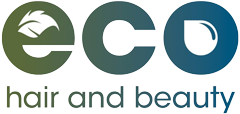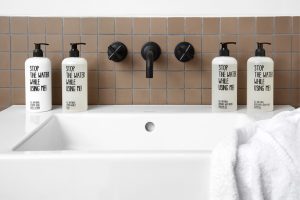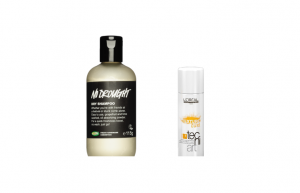“98% of Indonesian and Malaysian rainforests could be gone within ten years.” (LUSH, https://uk.lush.com/article/wash-your-hands-palm-oil)
Ethical consumer updated their best buy advice in June 2020
Palm oil-free shampoo brands include: Caurnie Soap, Conscious Skincare, Friendly Soap, Honesty and Pure Nuff Stuff.
Companies that source their palm oil more sustainably and get a best Ethical Consumer rating for their palm oil sourcing include: Odylique, Triangle Wholefoods Collective Ltd. (ALTER/NATIVE), Little Soap Company, Lush, Weleda, A.Vogel, L’Oréal (however Nestlé gets a worst rating), PHB Ethical Beauty, and Badger.
WHAT IS PALM OIL?
Palm oil is in many household products. You could be surprised by the variety of products that contain it: we eat it, brush our teeth with it and wash our hair with palm oil. It is not a bad ingredient, the fact it is so abundant shows it is highly useful. However, unsustainably sourced palm oil is irrevocably damaging the environment.
Palm oil is a vegetable oil from the fruit of the oil palms, an African tree in the palm family. As the demand for palm oil grows, areas of the Indonesian and Malaysian rainforest are being cleared at an alarming rate. ‘Compared to levels in 2000, demand is predicted to more than double by 2030 and triple by 2050’ (Greenpeace, https://www.greenpeace.org.uk/what-we-do/forests/indonesia/)
300 football fields an hour are being cut down to make way for unsustainable palm oil. This large-scale deforestation is harming wildlife and the environment.
Indonesia’s rainforests are a biodiversity hotspot, rich in endemic species, and vital in regulating the Earth’s climate. But these forests are being torn down for palm oil, pulp and paper plantations – making Indonesia the world’s third largest greenhouse gas emitter and threatening endangered species such as orang-utans with extinction.
(Greenpeace https://www.greenpeace.org.uk/what-we-do/forests/indonesia/)
When forests are cut down, orang-utans wander confused into neighbouring villages; in their native country this endangered species are seen as a pest. Orang-utans are killed/sold on the black market as pets. It’s not just orang-utans, there are also as little as 400 Sumatran tigers left in the wild. It is not just a problem for animals, there is also a vast impact environmentally:
Another, less well known environmental fact was how the land for palm growing was prepared – the peat it contained was burnt off resulting in the productions of 1400 million tonnes or carbon per annum making Indonesia the third largest producer of CO2 at the time. (Lush)
In short, we are endangering animals, killing beautiful natural habitats and causing irrevocable damage to the planet.
WHAT CAN YOU DO?
There have been efforts to combat the negative effects with production of sustainable palm oil. The Roundtable on Sustainable Palm Oil (RSPO) was created in 2001 and sets ‘clear ethical and ecological standards for producing palm oil’ (Greenpeace). When buying a product look for a RSPO certified logo or remember companies such as Unilever who are committed to buying sustainable palm oil. Alternatively, you could boycott palm oil completely.
WHAT COMPANIES AND HAIR PRODUCTS ARE PALM OIL FREE?
What use is it to know about the effects of palm oil without knowing where you can get palm oil free or RSPO certified products? Here’s a small yet comprehensive list.
LUSH – All products are online and you can see a list of ingredients and a description of each ingredient. Here’s an example with one of their shampoos.
https://uk.lush.com/products/daddy-o
-
- Aveda – Eco Hair and Beauty emailed Aveda directly, this is their response:
- [They use a limited amount of palm oil as a labeled ingredient.] ‘This palm oil is procured from sustainable sources through suppliers that share Aveda’s commitment to environmental responsibility. Also, since 2003, as part of our effort to use sustainably sourced ingredients, Aveda has developed ingredients that can replace palm oil, instead using certified organic babassu oil, harvested by traditional communities in Brazil, as a starting material for some of our most important and widely used cleansing and conditioning ingredients.’
-
- Unilever are committed to sustainable palm oil. Their vision ‘is that, by 2020, we will achieve a transformation of the palm oil sector in which the entire industry will move to 100% sustainable palm oil.’ Jeff Seabright, Chief Sustainability Officer. Unilever own many companies that are household names: Dove, LYNX, Matey, Sure, Toni&Guy, alberto balsam, BRUT, Impulse, Radox, Simple, TRESemme, VO5 and more.
- https://www.unilever.co.uk/brands/?category=408114
The following list is made from Rainforest Foundation UK in collaboration with The Ethical Consumer. These products are either palm oil free or committed to using sustainable palm oil. http://www.rainforestfoundationuk.org/media.ashx/rf-palm-oil-guide-update-v3.pdf
Pure Nuff Stuff is a palm oil free company! Their website has a list of all their ingredients. They sell a variety of products including beauty, skincare and packaging free too. https://www.purenuffstuff.co.uk/Our-Ingredients
-
-
- Honesty were ‘Founded in 1964 [and have] been manufacturing cruelty free skin and hair products for over 30 years’, palm oil free. http://www.honestycosmetics.co.uk/
-
- Green People – This company have many eco certifications, they never test on animals and don’t use harsh chemicals, palm oil free. https://www.greenpeople.co.uk/
-
- Neal’s Yard are well known for their green credentials. Here is a link to their hair products. http://www.nealsyardremedies.com/bath-and-body/haircare/
-
- Body Shop – Body Shop Shampoo & Conditioner, palm oil free product.
- The following is from the Palm Oil Product Guide, from Rainforest Foundation UK. http://www.rainforestfoundationuk.org/
-
CARDS ON THE TABLE
This short article took a lot longer to write than you may think. Many companies either didn’t respond to emails or gave vague answers with shoddy excuses ‘we can’t give you the names of the palm oil providers due to commercial competition’ etc.
The RSPO website does not have a comprehensive list of specific sectors, i.e. Hair care, and not knowing what companies to search for, you don’t get very far finding certified companies. How can you search for a company if you don’t know they exist? The purpose of searching is to discover new information.
Sadly it is easier for websites to show you products with ‘Palm’ in the name after putting ‘Palm Oil Free’ in their search bar, rather than showing what you’ve actually searched for.
ONE LAST THING
The main thing we at Eco Hair and Beauty have learnt working with salons and colleges across the UK is the alarming amount of people who have never heard about palm oil or the effects it can have on the environment. Please spread the word, education and knowledge are key. Thank you.



